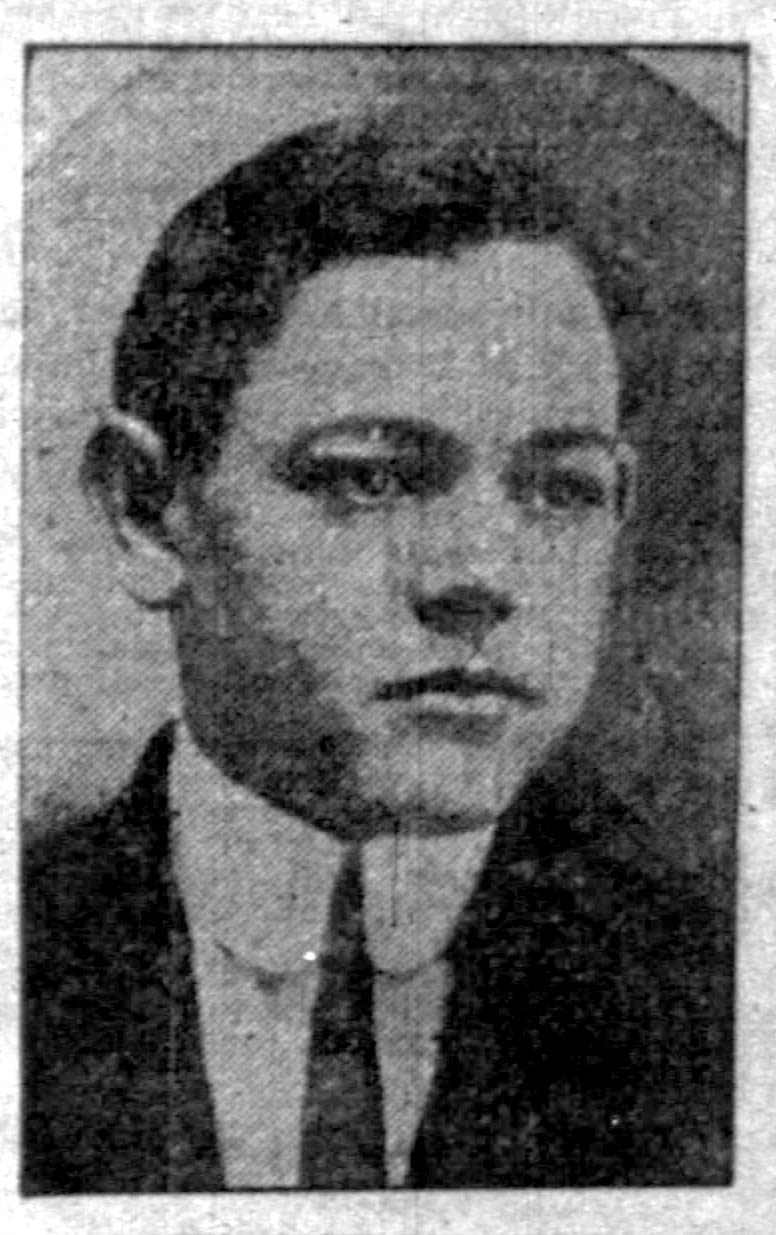
Somewhere in France, May 12, 1918
Dear Mother:
It's Sunday morning, and for awhile at least it seems as though I
will be able to get back into the habit of writing regularly on
Sunday. And it is a real pleasure to write this morning, especially
so since it is Mother's day. Little did I think when I was at
Columbia last year that my next Mother's day letter would be written
under such unusual conditions, and from such a quaint, interesting
village in France.
But a letter of love is just the same whether it be written one
place or another. We have had a good deal of spare time lately, and
I always think of home more when we aren't kept so busy drilling and
and training. I wondered many a night as I lay in my bunk on the
transport how you were and how all the folks at home were getting
along. And I have prayed that God might keep you and sustain you. I
am afraid that the news of my sailing was given you rather suddenly,
but I didn't want to cause you to worry, and even now I hope that
you will not worry about me. We are well taken care of and I am
feeling fine; have no cause to grumble at all and wouldn't if I did.
It is wonderful how the French people are taking care of the
American troops. And such kindness and such a welcome as they do
give us. Half of it, maybe more, we don't understand, but we can't
misunderstand the look on their faces or the spirit that prompts
them. We are certainly in a land of friends, and as I said before
they are doing everything for us that can be done.
I hope that my insistence that you not worry will not cause you to
think that there is any real cause for concern. For there isn't.
Anyway, you wouldn't have me any place except right where I am just
now, and under the conditions there isn't any place that I'd rather
be.
We often saw the term 'sunny France,' and we have learned in the
short time that we have been here that it is a good one. We have had
splendid weather and everything is beautiful. We have come to France
at a good time of the year. The cold weather is over and we are
looking forward to a lot of good summer weather.
Once again let me say that it is a privilege to send you this
Mother's day message of love and affection; may it find you well and
happy and assured that all will come well if we but trust.
Affectionately your son,
Lawrence

[July 31, 1918]
My Dear, Dear Mother:
Have been looking forward to the day when I could write you a real
long letter and tell you all the news. And now, thank goodness, I
can do it, and with my own hands, too. In other words, I am improved
to such an extent that I can sit up and write. And it sure feels
good, too.
I am sure that you are wondering just how and when I was injured,
so now I am going to relieve your mind and tell you. You doubtless
know of the big battle that began on the 18th. My regiment got into
the game on the 19th, and it was inevitable that some of us got it.
I was lucky, mighty lucky, compared with some of the men. I was sent
back to a dressing station after a while and was transferred to a
field hospital.
A machine gun bullet entered my thigh and lodged in my abdomen. It
was no trouble at all to remove the bullet, and after this was done
I was removed to the hospital where I am now, Camp Hospital No. 4.
At all stages of the game I have had most expert attention, and I
take it that you will understand that I now am able to write that
this service and station is getting results. I felt that suspense on
your part would be worse than the actual facts and think you will
agree with me, so decided to write everything and conceal nothing.
So now you know the worst isn't anything bad at all. The doctors
and nurses agree that I am getting along remarkably well. I suffer
but little pain. The main thing needed for complete recovery is time
and I've got all kinds of time.
Take the above just as it is written, please, and be assured that
final recovery is not far off. I am not going to write about my
wounds any more but am simply going to say that I am worse or
better.
Hope that everybody at home is in fine shape. Write as usual
because I continue to receive mail here.
Lots of love to you, my dear, dear, mother, and all the loved ones
at home.
Affectionately,
Lawrence


The camp hospital in Paris where
Lawrence Capehart died, August 5, 1918.
(Image from
Medical Department of
the United States Army in the World War, available
online.
Entry from Indiana's
Gold Star
Honor Roll, available
online.
Sources:
"Men of Draft Age Barred by Y.M.C.A.," Evening
Star (Washington, D.C.), 11 Jan. 1918, p. 3.
"Letter Written Mother's Day Arrives from
France," Courier-Journal (Louisville, Ky.), 9 June 1918,
p. 18.
"Dies Fighting for Democracy," Courier-Journal
(Louisville, Ky.), 17 Aug. 1918, p. 3.
"Left Y.M.C.A. to Enlist," Indianapolis
News, 19 Aug. 1918, p. 16.
"'I Was Lucky,' He Writes -- and Dies," Evening
Missourian (Columbia, Mo.), 27 Aug. 1918, p. 1.
John Williams Oliver, ed., Gold Star
Honor Roll: A Record of Indiana Men and Women Who Died in Service
of the United States and the Allied Nations in the World War
(Indianapolis, Ind.: Indiana Historical Commission, 1921), 79.




